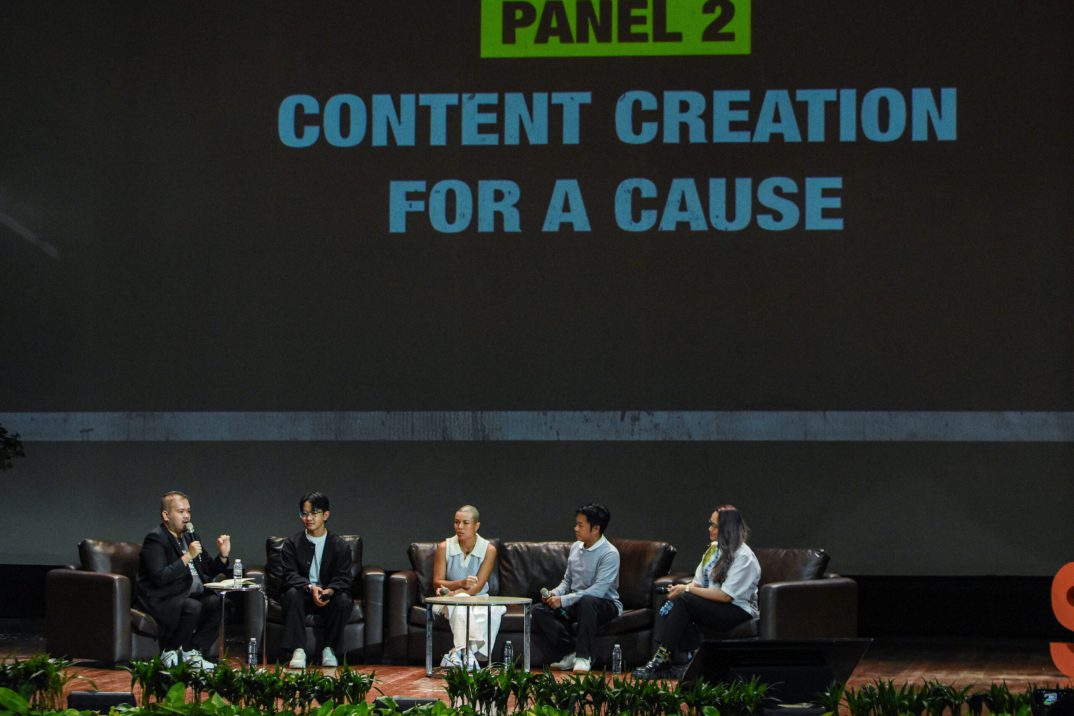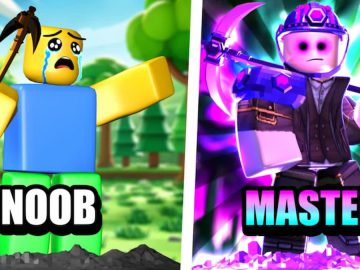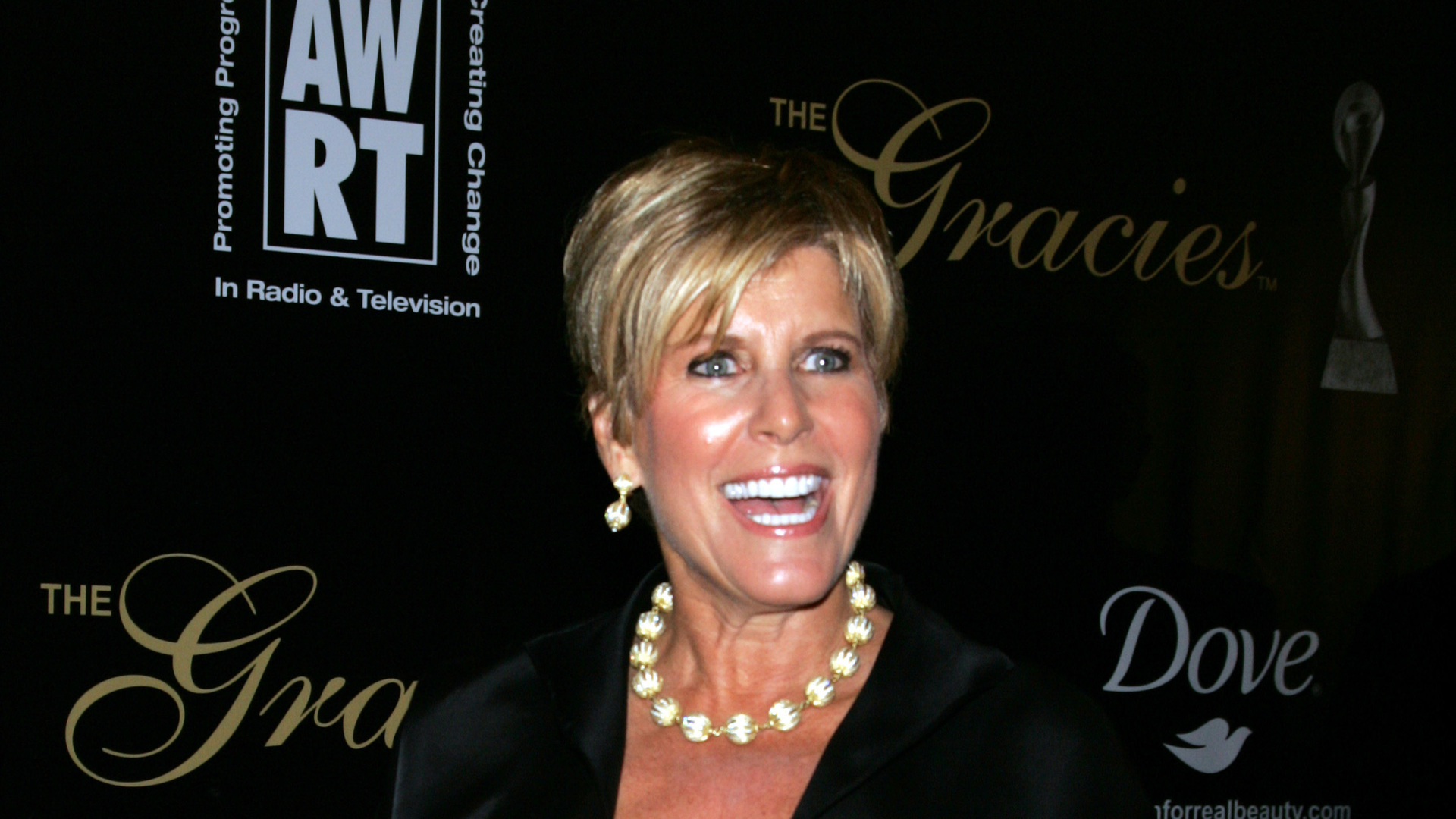MANILA, Philippines – Let’s talk about content creation for today’s video.
Prominent content creators in the Philippines gathered in a panel discussion during the 2024 Social Good Summit on Saturday, October 19, discussing how to use content creation to forward their respective advocacies.
Joining the panel were pharmacist Arshie Larga, mobility advocate Buji Babiera, dietitian Jo Sebastian, and education advocate Lyqa Maravilla.
Provide value-adding content
When asked how content creators can stand out in a landscape where users post content left and right, Larga suggested providing content not just for entertainment, but also for educational purposes.
Larga built a huge following for posting videos that laymanize medicine and health-related issues.
‘LET ME EXPLAIN.’ Arshie Larga at Social Good Summit 2024 Panel 2: Content creation for a cause, at the Yuchengco Hall of Dela Salle University in Manila on October 19, 2024.
“Aside from being consistent, dapat value-adding lagi ang content. Para kasing over na tayo doon sa entertainment phase ni TikTok (Aside from being consistent, your content should be value-adding. Because it seems like people are over the entertainment phase of TikTok),” he explained.
“Hindi naman sa nagbubuhat ng sariling bangko, pero napansin ko lang sa behavior ng audience ko, bakit nila tatangkilikin ’yung type ng content ko kung wala silang natutunan? So may mga type ng audience, akala natin gusto lang nila for fun. Gusto din pala ng mga taong matuto.”
(Not to brag, but from what I noticed in my audience, why would they patronize my content if they don’t learn anything? So there are types of audience that, other than seeking entertainment, they also actually want to learn.)
Aside from market saturation, content creators also have to deal with hate and negative comments on their pages. What are their go-to solutions?
In the case of Babiera, an advocate of people-centric transportation, he deletes negative comments —first, to protect his mental health, and second, to prevent them from propagating into something worse.
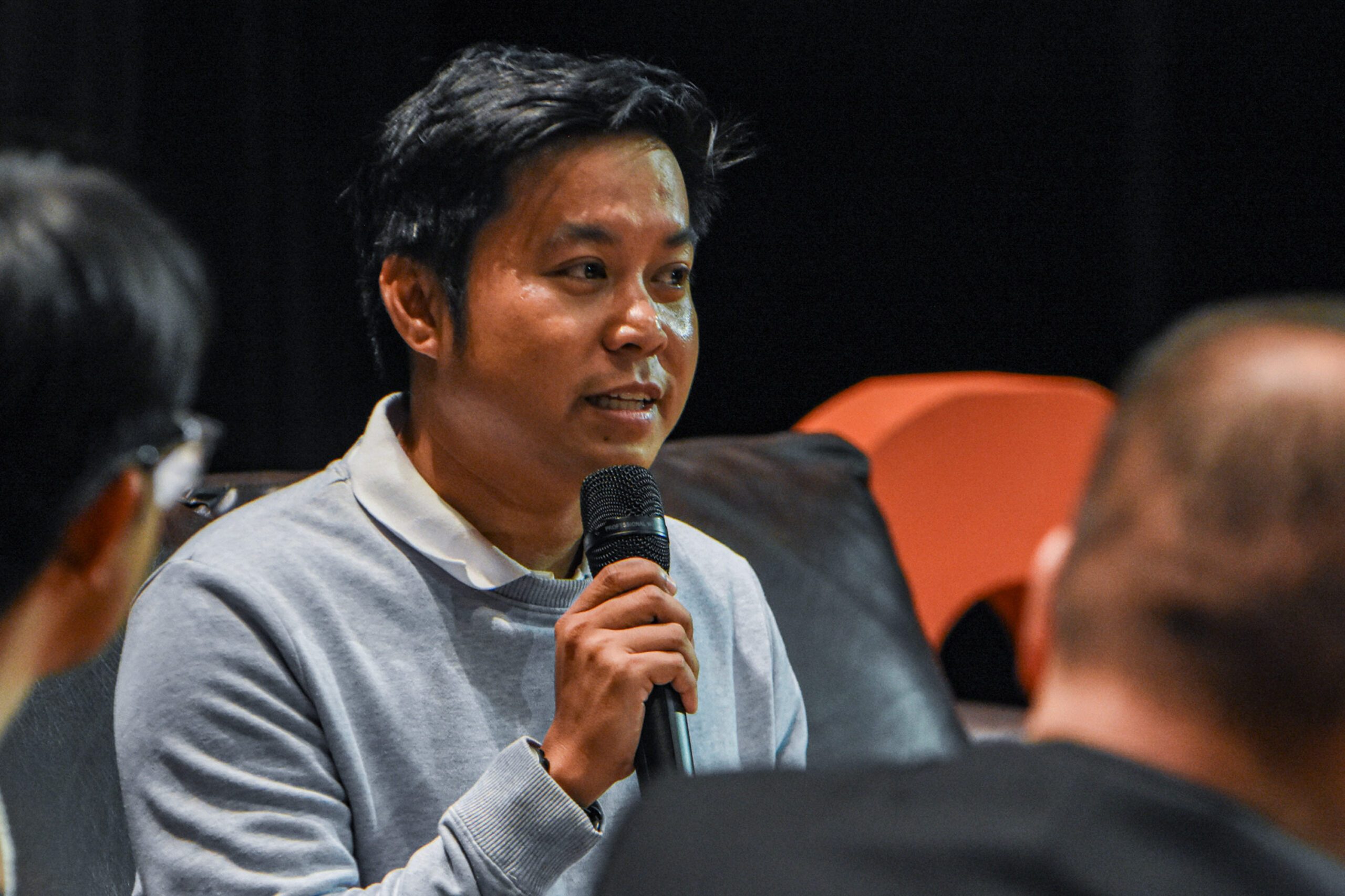 STORYTIME. Mobility advocate Buji Babiera at the Social Good Summit 2024 Panel 2: Content creation for a cause, at the Yuchengco Hall of Dela Salle University in Manila on October 19, 2024.
STORYTIME. Mobility advocate Buji Babiera at the Social Good Summit 2024 Panel 2: Content creation for a cause, at the Yuchengco Hall of Dela Salle University in Manila on October 19, 2024.
He narrated a time when he posted a TikTok video lamenting the removal of some bike lanes in Metro Manila. His comment section was then swarmed with threats of “Sana mabangga ka (I hope you get hit by a car).”
“That’s very scary on my part because I’m always on a bike. So, [with the lack of bike lanes], walang pumoprotekta sa aking metal [panangga] sa mga kotse kapag nasa kalsada ko. So, what if, biglang habang nagbibisikleta ko, biglang banggain ako ng sasakyan or may sumapak sa akin randomly,” Babiera added.
(With the lack of bike lanes, there’s nothing protecting me from cars when I’m on the road. So, what if, while I’m riding my bike, someone suddenly hits me with their car randomly?)
He then shifted to the perspective of content viewers. “Many people, including me sometimes, while watching a video, I go to the comment section. Tinitingnan ko ano ‘yung sinasabi ng mga tao. And hindi ko naiiwasan sometimes na ma-influence ako ng comments kaagad (I look at what people are saying. And I can’t help but be influenced sometimes by the comments immediately),” Babiera said.
“So ako, personally, at least meron akong control doon sa videos ko, sa comment section ng inuploadan ko (So for me, personally, at least I have control over my videos and my comment section),” he added.
Create — and share — content responsibly
An October 2024 report from the Pew Research Center showed that TikTok users are now relying on content creators, not journalists, for news information. How can content creators ensure that what they produce is accurate?
Maravilla, an “EduCreator” who produces various educational content, suggested consulting experts as part of your content creation process.
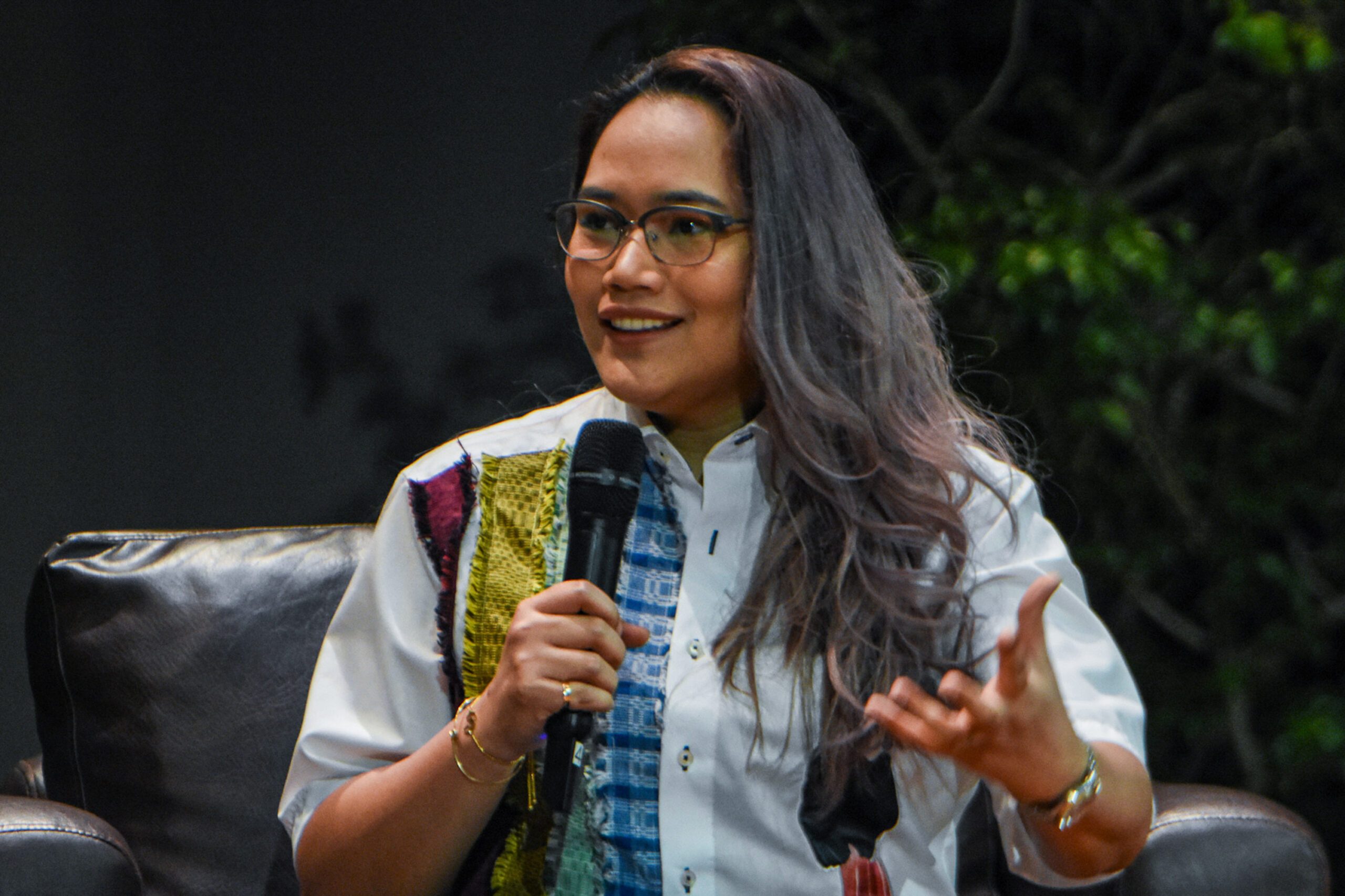 EDUCREATOR. Lyqa Maravilla at the Social Good Summit 2024 Panel 2: Content creation for a cause, at the Yuchengco Hall of Dela Salle University in Manila on October 19, 2024.
EDUCREATOR. Lyqa Maravilla at the Social Good Summit 2024 Panel 2: Content creation for a cause, at the Yuchengco Hall of Dela Salle University in Manila on October 19, 2024.
“In my workflow, we have a set of experts. So, for example, if I’m going to speak on language, I have professor friends I can ask if what I’m saying is correct. If I talk about history, I send my outline to them for checking and ask if I said anything wrong before releasing,” she said in a mix of English and Filipino.
“So, even if you’re a starting content creator, you can also do that. Build your checks and balances in the organizational structure.”
There’s also been a variety of discourse on content creators using their platform to raise awareness on issues outside their advocacies. Should they?
For Sebastian, whose content focuses on promoting healthy eating habits, it’s important to figure out first if one is knowledgeable enough about the topics they talk about.
“One of my goals to create content is to combat nutrition misinformation, so I definitely know how misinformation can spread widely and it can be very hard to change those beliefs. So that’s one of the biggest things that I struggle with — if I don’t know enough about the topic and I’m not even sure if what I’m going to say is correct, how do I share that without creating more of a problem?” she expounded.
Sebastian then recognized the platform and influence content creators have, which they can use by directing their audience to the right resources for proper information.
“You don’t have to speak about it necessarily because, you know what if you do something worse in that sense. But at least direct [your audience] to the right place,” she added.
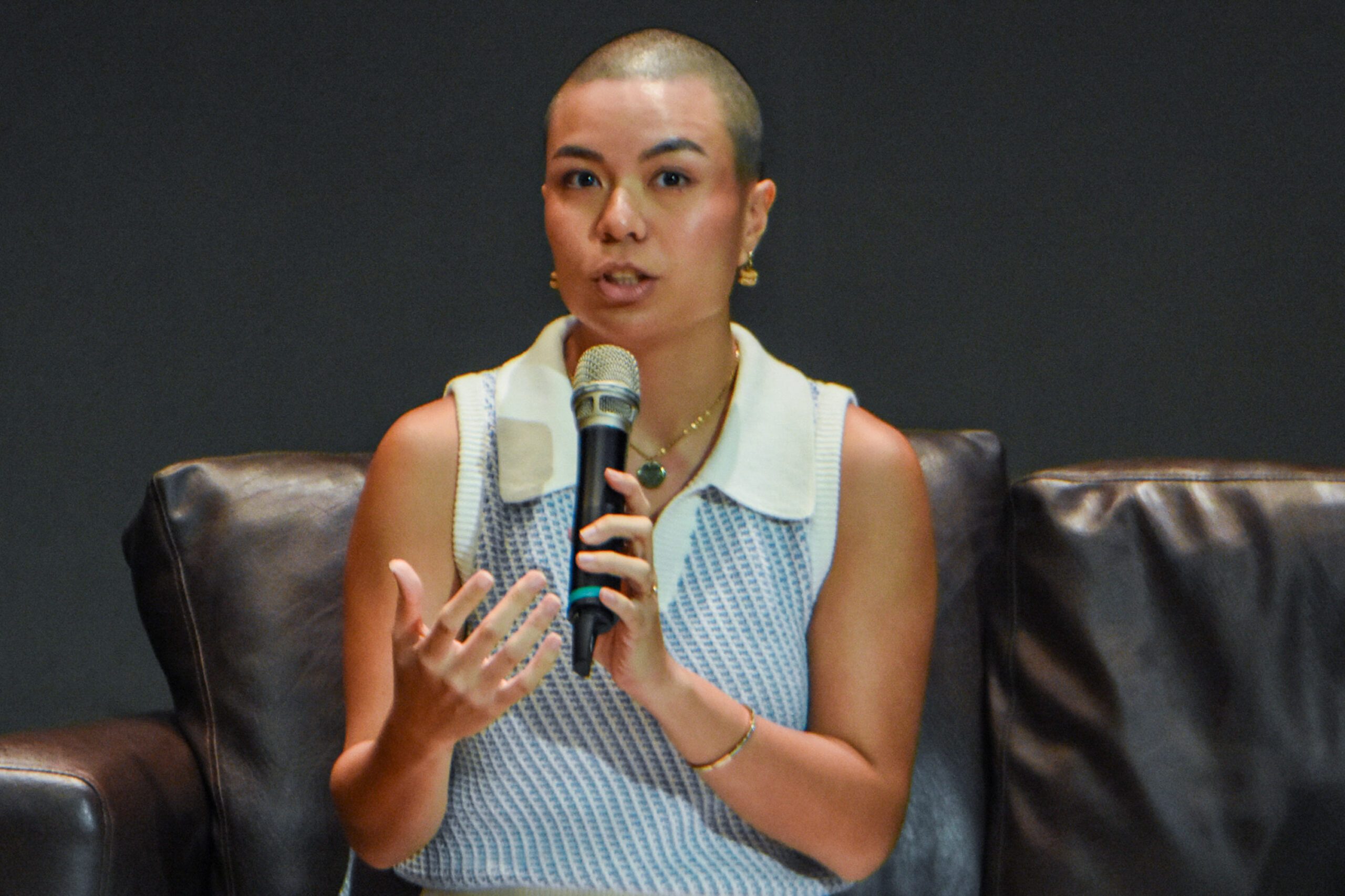 ‘YOU ALWAYS DESERVE TO EAT.’ Jo Sebastian at the Social Good Summit 2024 Panel 2: Content creation for a cause, at the Yuchengco Hall of Dela Salle University in Manila on October 19, 2024.
‘YOU ALWAYS DESERVE TO EAT.’ Jo Sebastian at the Social Good Summit 2024 Panel 2: Content creation for a cause, at the Yuchengco Hall of Dela Salle University in Manila on October 19, 2024.
Get ahead of deepfakes — by building a strong sense of character
Deepfakes generated by artificial intelligence are growing at an alarming rate, propagating disinformation on diabetes “cures” and even targeting the President.
How big of a concern is it for content creators?
“Sana naman hindi mangyari na biglang in-AI na pala yung mga mukha natin. And like, influencers and content creators. Pero baka pwedeng mangyari ‘yon. And nakakatakot,” Babiera said.
(I hope we don’t suddenly see AI versions of our faces and our fellow content creators and influencers online. But it can happen. And it’s scary.)
Maravilla suggested one deterrent of content creator deepfakes: a character strong enough for your audience to know whether a post shows the real you or not.
“Sa case ko, may nangyari na before nag-endorse ng alcohol yata or something like that. Tapos may nag-comment talaga na mommy na, ‘Coach, alam ko hindi ikaw to kasi hindi mo to gagawin kailanman,’” she shared.
“O di sabi ko, oo malungkot ako, syempre…. Pero magandang, I think, clue ‘yun sa akin na I stood on my principles well enough that the community knows that it’s not something I would do.”
(In my case, there was one deepfake that showed me endorsing alcohol. Then there was one mom who commented, “Coach, I know that wasn’t you because you wouldn’t do something like that ever.” At first I said that was saddening, of course. But I think it was a good manifestation of how I stood on my principles well enough that the community knows that it’s not something I would do.)
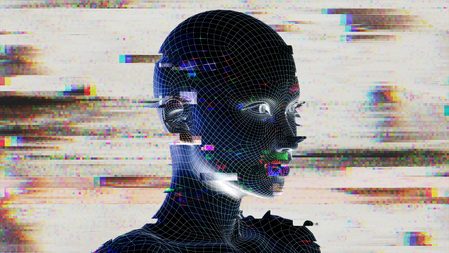
Advocacy first before money
Speaking of endorsements, what kind of deals do content creators for a cause take?
“For content creators for good, we tend to say no more times than we say yes. So [it’s not] as lucrative as one would think,” Maravilla revealed, saying brand deals should align with their advocacies first.
For Larga, it’s a matter of keeping the trust of your audience.
“At the end of the day, ang lagi ko sinasabi sa sarili ko, pharmacist muna ako bago ako naging isang content creator (what I always say to myself is I was a pharmacist first before I became a content creator),” he said.
“Kasi nga, ‘pag nawala yung tiwala ng mga tao sa akin, kahit anong gawin ko pang other content na para makakatulong sa kanila, dahil nawala na yung trust nila sa akin…Are you willing to sacrifice that? So, ayun, ‘yung trust ng mga taong nanonood, ‘yun lagi yung parang mas importante sa akin.”
(Because if I lose the trust of my audience, no matter how long I continue putting out content that may help them, they won’t view it anymore. Am I willing to sacrifice that? So the trust of my audience, that’s what’s more important for me.) – Rappler.com

